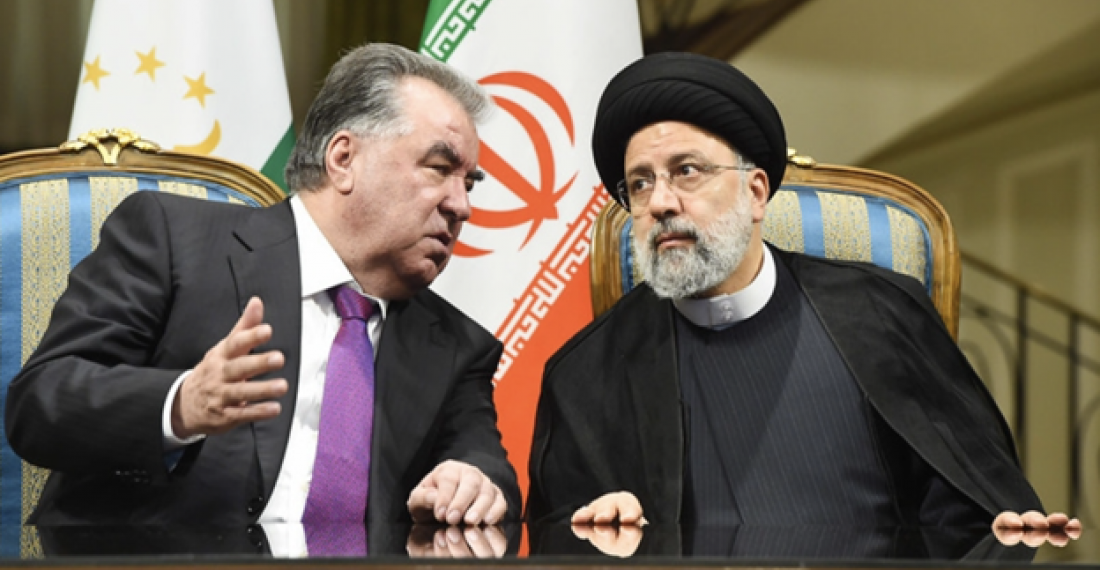Iran and Tajikistan, in a change of course, appear to have opened a new chapter of friendly relations. After years of accusations from the Tajik government that Iran was supporting militant activity, the two countries, over the past month, have signed several agreements increasing co-operation in various areas. Tajik President, Emomali Rahmon, travelled to Tehran on an official visit at the end of last month to sign the documents.
On 17 May, the chief of staff of the Iranian armed forces, Major-General Mohammad Bagheri, visited Tajikistan to increase security cooperation. He attended the opening of a facility designed to produce Iranian Ababil-2 tactical drones. Rahmon then embarked on a two-day trip to Iran on 30 May, at the invitation of Iranian President, Ebrahim Raisi. Dushanbe and Tehran were able to sign agreements on cooperation in 17 different fields including trade, energy, education, and transportation; the landmark accord being the resumption of direct Dushanbe-Tehran commercial flights.
A history of cold relations between the two countries dates back to the Tajik Civil War in the 1990s. The Tajik government accuses Iran of having supported the opposition and of financing terrorism. Frosty ties continued until 2020, with a state-televised documentary alleging that Iran backed terrorism in Tajikistan. The government also imprisoned significant numbers of Iranian graduates.
Under the new presidency of Raisi, who assumed office in August 2021, relations have steadily improved. Tajikistan was the first country visited by Raisi, which “was of high significance for Tajiks,” according to Ali-Ashraf Mojtahed Shabestari, Iran’s first ambassador to Tajikistan. The reasons given for the reset are Raisi’s new leadership, which has promoted closer ties with Tajikistan. Tajikistan’s usual security guarantor, Russia, who has multiple military bases in Tajikistan, is bogged down in the war in Ukraine, leading Dushanbe to look towards diversifying its defence, as well as trade relations.
While no agreements were signed on security, there is a feeling among analysts that one may come soon. The accords illustrate the weakening of the Kremlin’s influence in Central Asia and the downstream effects of their invasion of Ukraine. They also reflect a widespread desire, noticed across the whole Central Asia region, to lessen dependence on Moscow and develop a more diversified relationship with other countries and blocs, including the US, the EU and Japan.
Sources: CommonSpace.eu with Asia-Plus (Dushanbe), Eurasianet (New York), and other media agencies
Picture: Emomali Rahom and Ebrahim Raisi (Tajik Presidential Administration)
Sources: CommonSpace.eu with Asia-Plus (Dushanbe), Eurasianet (New York), and other media agencies
Picture: Emomali Rahom and Ebrahim Raisi (Tajik Presidential Administration)






